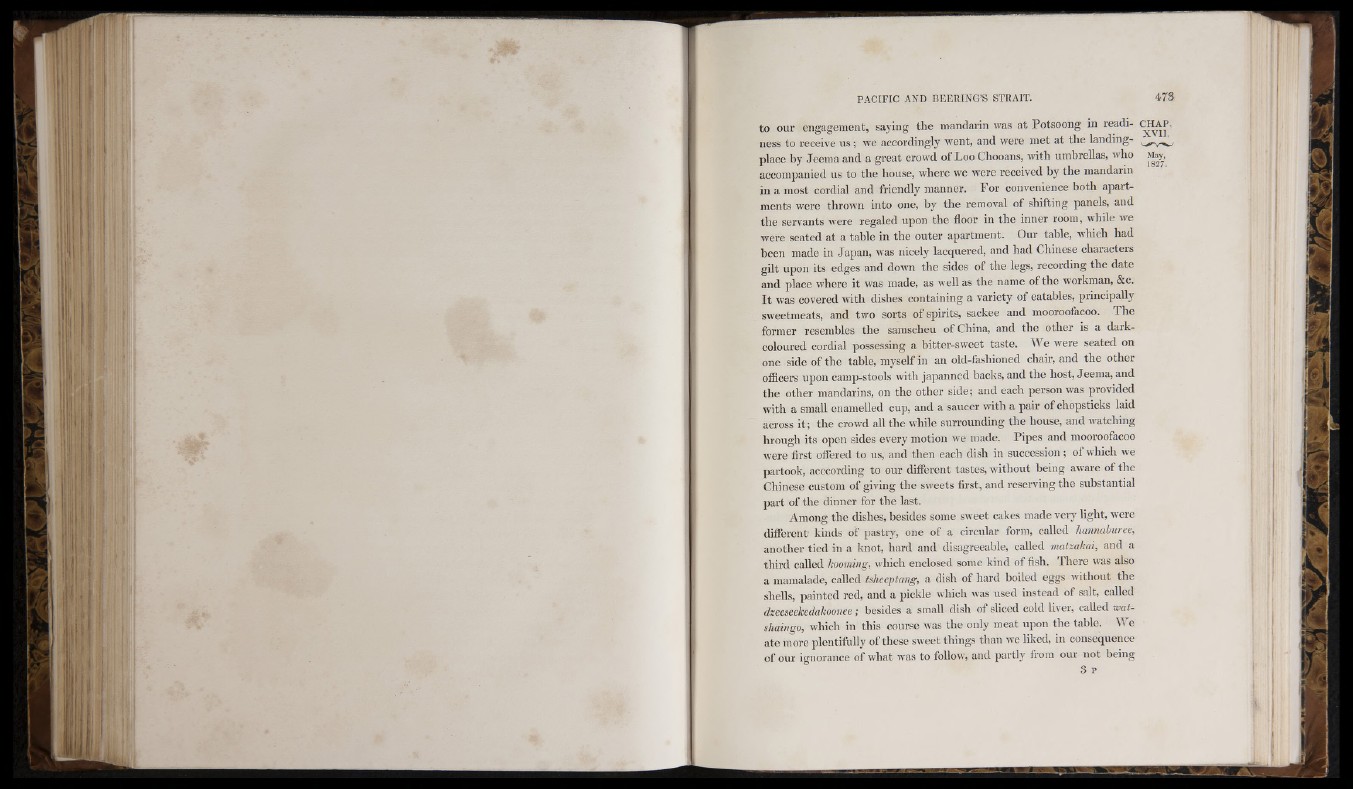
Ml :i
illl'' ;
'111 S1
13!
I h
, i i i
1 lllrii
' 111 I''
,: (|
i II
May,
1827.
to our engagement, saying the mandarin was at Potsoong in readi-
ness to receive u s ; we accordingly went, and were met at the landing-
place by Jeema and a great crowd of Loo Chooans, with umbrellas, who
accompanied us to the house, where we were received by the mandarin
in a most cordial and friendly manner. For convenience both apartments
were thrown into one, by the removal of shifting panels, and
the servants were regaled upon the floor in the inner room, while we
were seated at a table in the outer apartment. Our table, which had
been made in Japan, was nicely lacquered, and had Chinese characters
gilt upon its edges and down the sides of the legs, recording the date
and place where it was made, as well as the name of the workman, cSce.
It was covered with dishes containing a variety of eatables, principally
sweetmeats, and two sorts of spirits, sackee and mooroofacoo. The
former resembles the samscheu of China, and the other is a dark-
coloured cordial possessing a bitter-sweet taste. W e w'ere seated on
one side of the table, m yself in an old-fashioned chair, and the other
officers upon camp-stools with japanned backs, and the host, Jeema, and
the other mandarins, on tbe other side; and each person was provided
with a small enamelled cup, and a saucer with a pair of chopsticks laid
across it; the crowd all the while surrounding the bouse, and watching
hrougb its open sides every motion we made. Pipes and mooroofacoo
were first offered to us, and tben each dish in succession ; of which we
partook, acccording to our different tastes, without being aware of the
Chinese custom of giving the sweets first, and reserving the substantial
part of the dinner for tbe last.
Among the dishes, besides some sweet cakes made very light, were
different kinds of pastry, one of a circular form, called hannaburee,
another tied in a knot, hard and disagreeable, called matzakai, and a
third called kooming, w bicb enclosed some kind of fish. There was also
a mamaladc, called tsheeptang, a dish of hard boiled eggs without tbe
shells, painted red, and a pickle which was used instead of salt, called
dxeeseekcdakoonee; besides a small dish of sliced cold liver, caUed wat-
shaiiigo, which in this course was tbe only meat upon tbe table. We
ate more plentifully ofthese sweet things than we liked, in consequence
of our ignorance of what w'as to follow, and partly from our not being
3 p
r